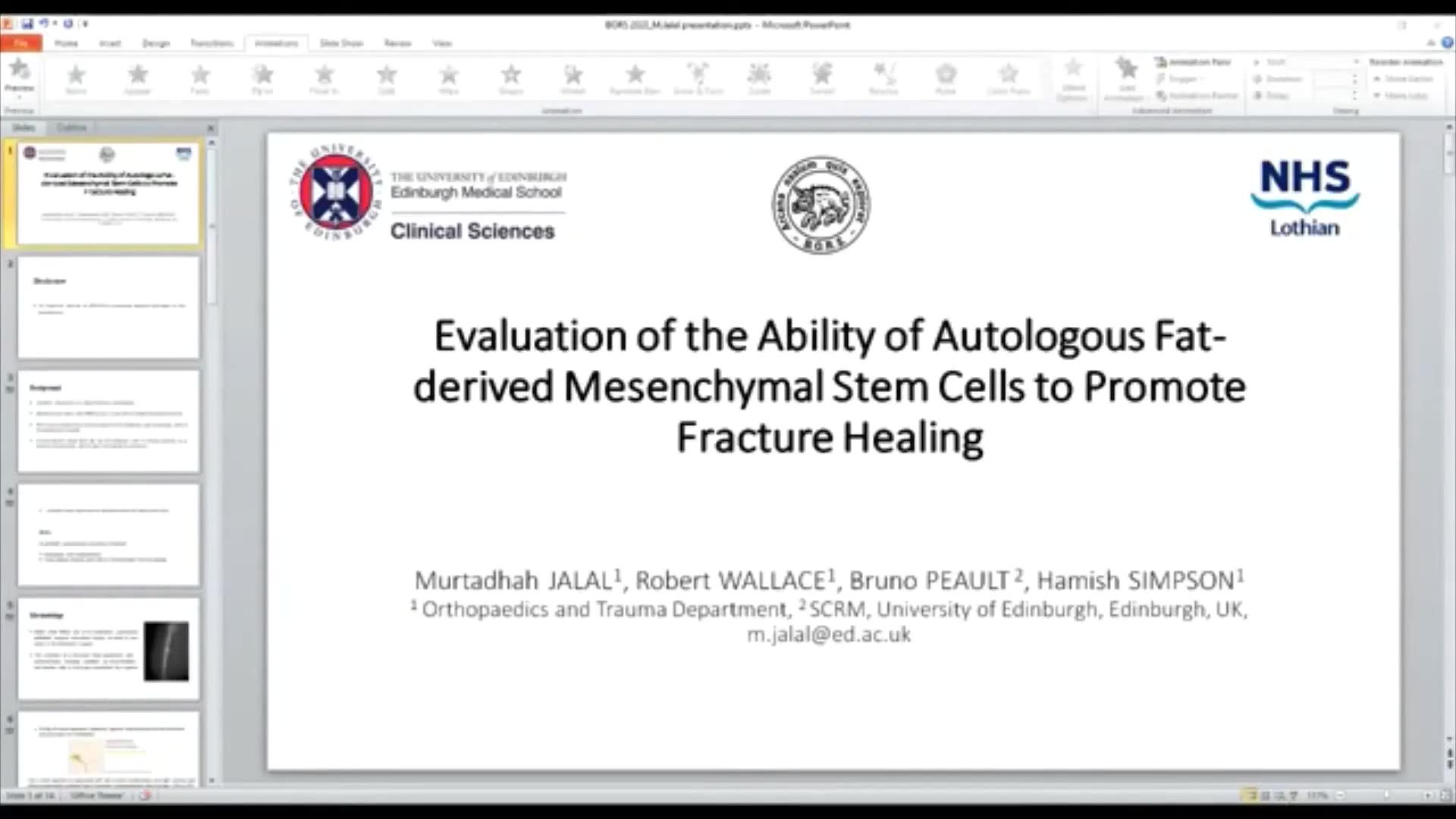Please login to view this media

- Talk
- 07/09/2020
- UK
Evaluation of the Ability of the Autologous Fat-derived Mesenchymal Stem Cells to Promote Fracture Healing
Description
The presentation begins with Murtadhah Jalal, a final year PhD student from the University of Edinburgh, introducing his research on evaluating the ability of autologous fat-derived mesenchymal stem cells (MSCs) to promote fracture healing. He discloses that there are no financial interests related to the materials discussed. Tackling the background of the issue, he explains that nonunion is a significant complication in fractures, and while MSCs enhance healing, the use of allogeneic and xenogenic transplantation models presents challenges like disease transmission and ethical concerns. Therefore, the study aims to investigate autologous cell transplantation from adipose tissue.
Using male Wistar rats, Murtadhah describes the surgical procedure for nonunion generation and how fat tissue was harvested during the same operation for MSC isolation. He details the culturing of the harvested cells, which increased to five million before being injected into the fracture site. The results showed successful union in all fractures treated with stem cells and a larger amount of callus formation compared to allogeneic and xenogenic controls. Histological analysis revealed higher bone formation and lower fibrous tissue in the treated sites. Murtadhah concludes that autologous MSCs demonstrated superior healing compared to xenogenic MSCs, showing promise for their use in clinical applications for fracture healing.